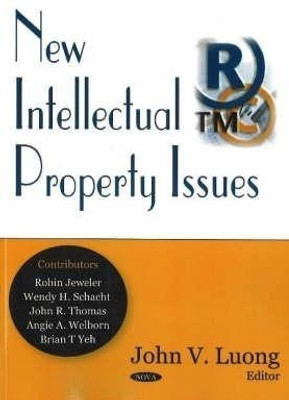New Intellectual Property Issues(English, Hardcover, unknown)
Quick Overview
Product Price Comparison
In law, intellectual property (IP) is a broad entitlement extending the concept of property beyond its materialist definitions to include information, ideas, and other intangible assets in their expressed form. Depending on jurisdiction, IP rights generally enable the holder to exercise exclusive rights over the subject matter (or "work") of the IP using copyright, patent, trademark, industrial design right and similar legal protections. The term reinforces that such works are the product of the mind or intellect and that any rights may be protected at law in the same way as any other form of property. The basic public policy rationale for the protection of intellectual property is that IP laws facilitate and encourage the pursuit and disclosure of innovation into the public domain for the common good, by granting authors and inventors exclusive rights to exploit their works and invention for a limited period. However, various schools of thought are critical of the term "intellectual property". The critics characterise IP as intellectual protectionism. There is ongoing debate as to whether IP laws truly operate to confer the stated public benefits, and whether the protection they are said to provide is appropriate in the context of innovation derived from such things as traditional knowledge and folklore, and patents for software and business methods. Manifestations of this controversy can be seen in the way different jurisdictions decide whether to grant intellectual property protection. This book explores these issues as they apply to various contexts.


